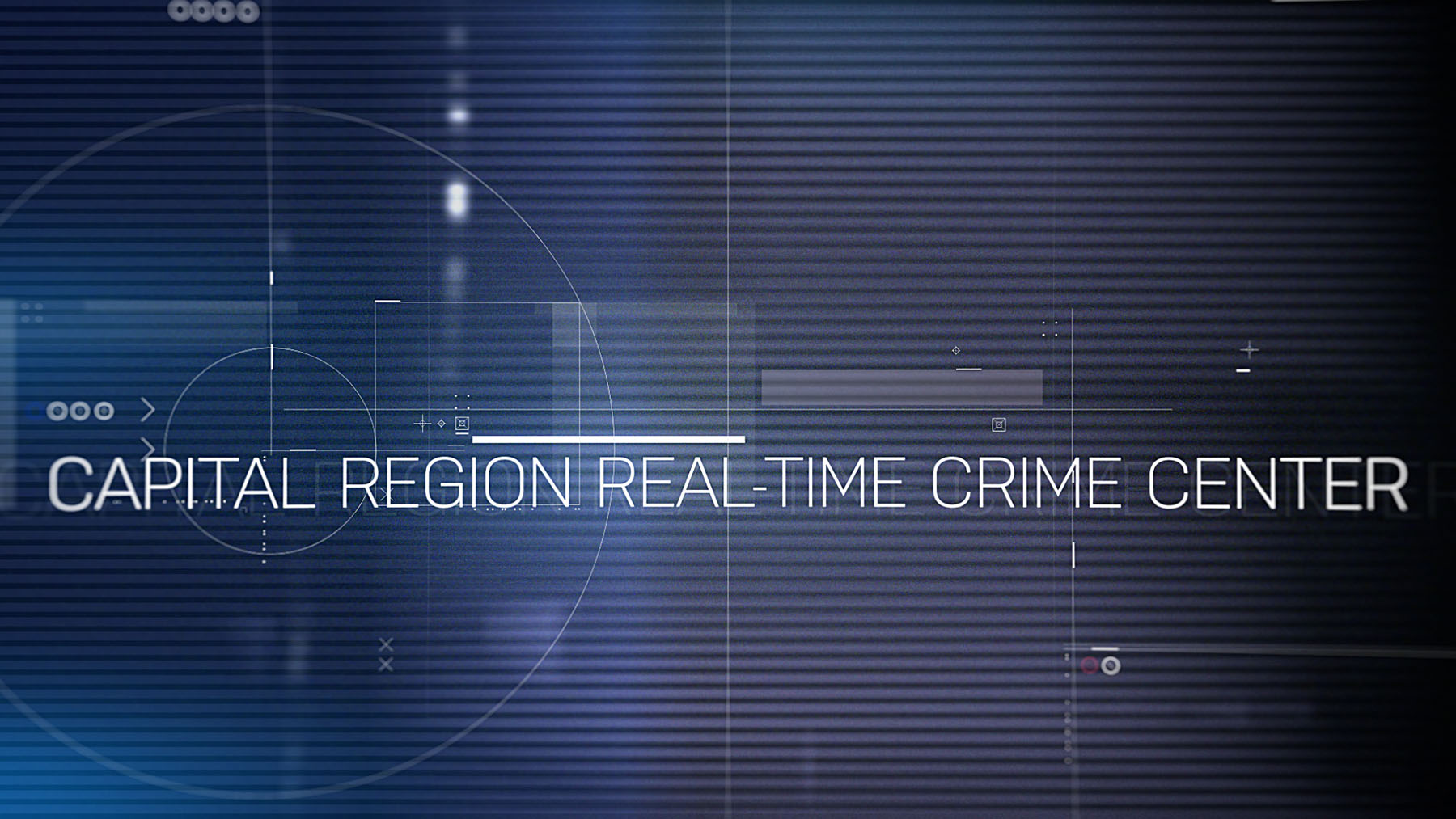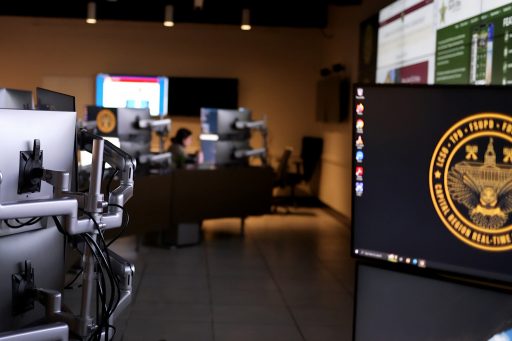
Barely a year since the Capital Region Real Time Crime Center (CRRTCC) opened its tech-driven headquarters at Florida State University, it is already earning accolades and acclaim.
Fresh off being named the Center of the Year by the National Real Time Crime Center Association (NRTCCA), officials say the CRRTCC stands at the vanguard of a field that is reshaping law enforcement.
The center is a collaboration of FSU's College of Criminology and Criminal Justice (CCCJ), the Tallahassee Police Department, the Leon County Sheriff's Office, the FSU Police Department and the Florida Department of Law Enforcement. Among its functions, it provides 24-hour, real-time data to local law enforcement on everything from car accidents to crimes in progress.
What they are doing there is setting an example for other centers around the nation. The level of collaboration they have with their partner agencies -and having FSU's College of Criminology and Criminal Justice embedded in their daily operations- really sets them apart.
- Nikki North, president of the NRTCCA
"What they are doing there is setting an example for other centers around the nation," said Nikki North, president of the NRTCCA. "The level of collaboration they have with their partner agencies -and having FSU's College of Criminology and Criminal Justice embedded in their daily operations- really sets them apart."
Thomas Blomberg, dean of the CCCJ, said the CRRTCC's early success reflects the power of the partnership that fuels the center. It's also just the latest example of the college delivering on its mandate of producing research that translates into the real world.
"Our role as an equal partner puts us at the nexus of research and policy in a field that is becoming a fixture of law enforcement throughout the country," he said. "'Bringing research to life,' is emblazoned on our college's shield. It is an ethos that guides our work here, and the center is a great example of that commitment."
Research for the Real World
There are hundreds of RTCCs nationally, but they vary widely in size, scope and function. Some centers are merely rebranded crime intelligence units, while others don't operate 24 hours daily.
"The college's involvement in the CRRTCC is a defining feature; no other RTCC has a college as a founding and embedded partner," said Julie Brancale, assistant professor of criminology and criminal justice. "What we are learning through our research and the opportunities we will be able to provide our students is unique."

The CRRTCC is home to 12 analysts and two analyst supervisors-seven of whom are FSU alumni- who provide officers and deputies in the field information via a suite of cutting-edge technologies, including video and real-time mapping. Workstations are fitted with six monitors powered by custom-made computers. Desks face a wall lined with larger screens displaying real-time mapping data, active crime incidents, and developing news.
CRRTCC Co-director and TPD lieutenant Travis Bergeron said the research is yielding information on the best way to deploy these technologies.
"From body-worn cameras and license-plate recognition to mapping data, there is a lot of technology available to us now that was science fiction just a few years ago," Bergeron said. "In addition to providing real-time data that helps with officer safety and public safety, we are also answering the question of what works best and when."
Using Public Input to Shape Policy
As with any new technology used in law enforcement, balancing public safety and privacy is a paramount consideration. To that end, CCCJ researchers are wrapping up a community survey that will provide valuable insight into public understanding and expectations of how this balance should look.
"When the public is aware of factors like how and when a camera is used and what it is capturing, there is transparency and accountability," Brancale said. "These factors can contribute to strengthening relationships between the public and law enforcement."
Data is still being gathered but Bergeron said increased rates in the recovery of stolen vehicles and reduced case closure times are two areas where the center is yielding results. The CRRTCC was instrumental in the arrest of a driver suspected of a fatal hit-and-run earlier this year in Tallahassee.
The CRRTCC includes a teaching component with an in-house learning lab, in which FSU students will be able to earn an educational certificate in crime analysis and intelligence, enhancing their career opportunities in a rapidly growing field.
Professor Brian Stults said the benefits of RTCCs are still emerging and informing the public about how these technologies are used is crucial to ensuring public trust.
"For example, I think there can be a misconception that law enforcement is actively surveilling residents by constantly monitoring camera feeds, but there are strict policies in place about how and when these cameras can be used."
As the research arm of the CRRTCC, the college also conducts process and outcome evaluations, surveys of law enforcement personnel and interviews with agency stakeholders and produces peer-reviewed publications.
Researchers are in dialogue daily with the three local law enforcement agencies, honing best practices that inform officers in the field and researchers alike. As Blomberg pointed out, being at the forefront of this work means these findings can be exported to budding centers nationally.
Stults agreed.
Moving forward, having this real-world laboratory to assess the impact of these technologies and practices will be beneficial not just for local law enforcement but for agencies and RTCCs across the country.
- Professor Brian Stults
"It is encouraging to see our partner agencies' interest in our research findings and testing whether their expectations are confirmed or not. They are eager to evaluate strengths, weaknesses, what's effective, and areas for improvement," Stults said. "Moving forward, having this real-world laboratory to assess the impact of these technologies and practices will be beneficial not just for local law enforcement but for agencies and RTCCs across the country."






